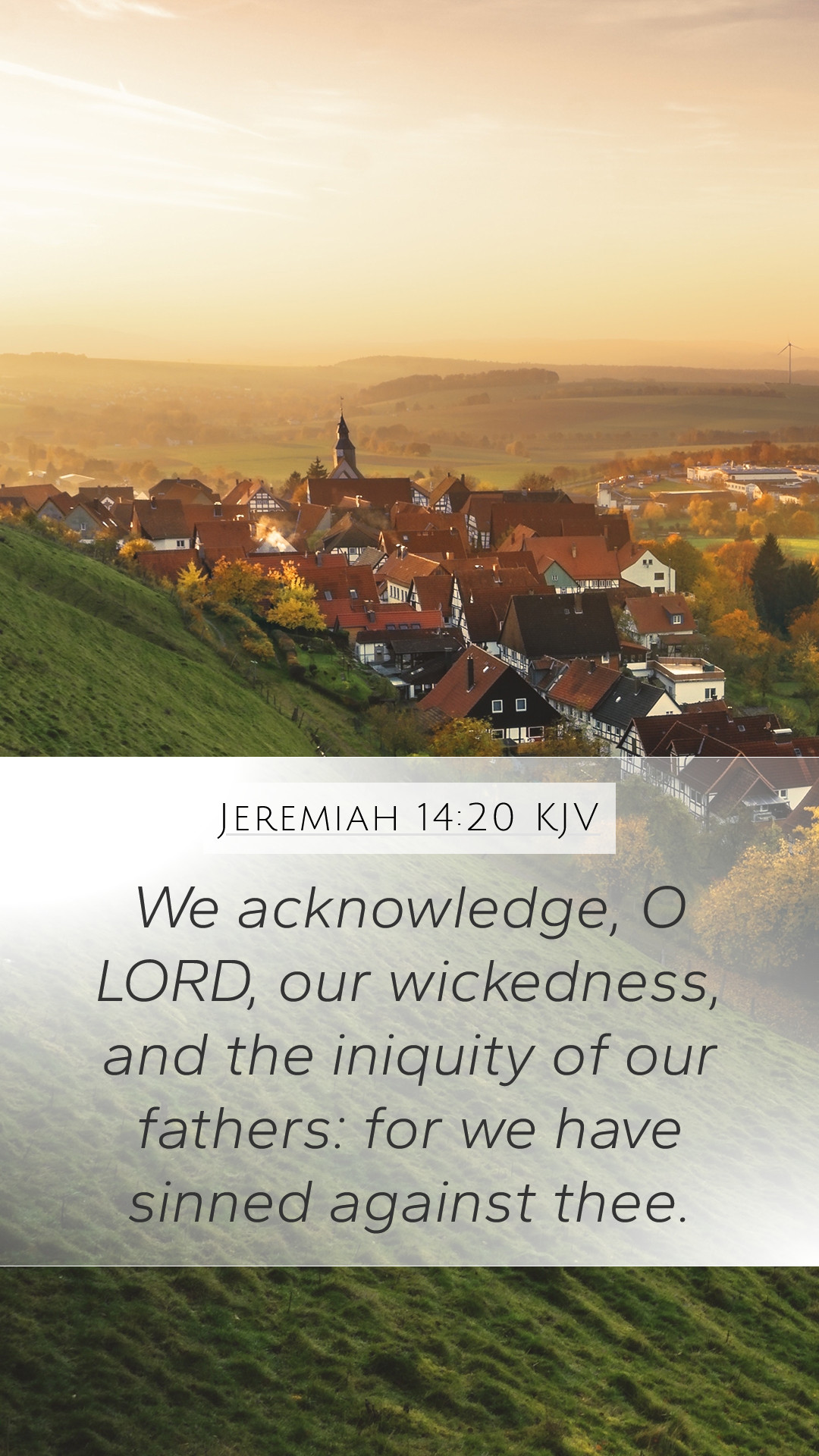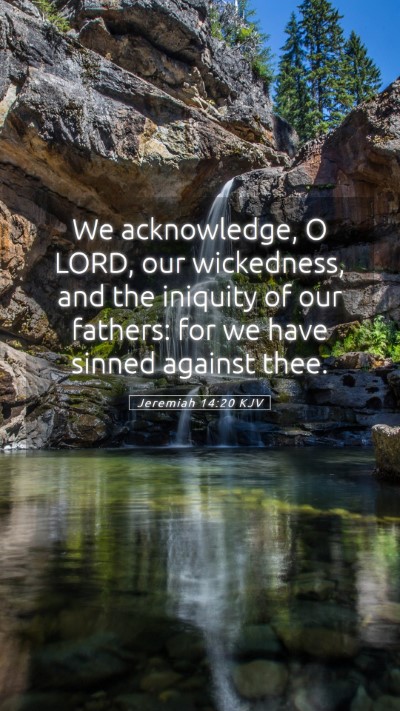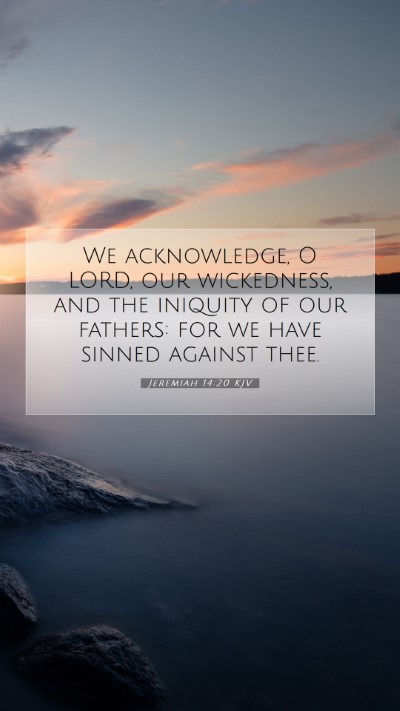Understanding Jeremiah 14:20 - Commentary and Insights
Jeremiah 14:20 reads: "We acknowledge, O Lord, our wickedness, and the iniquity of our fathers: for we have sinned against thee." This verse captures the essence of repentance and the acknowledgment of sin, both personally and as a nation. The insights from respected public domain commentaries shed light on its depths.
Bible Verse Meanings
In this verse, Jeremiah speaks on behalf of the people of Judah, recognizing their collective sinfulness. This acknowledgment implies a deeper understanding of their relationship with God and serves as an essential model for humility and repentance.
Bible Verse Interpretations
Matthew Henry emphasizes that true repentance includes an admission of guilt. The reference to "the iniquity of our fathers" suggests that sins are often carried through generations, and it is crucial to acknowledge the historical context of sinful behaviors.
Bible Verse Understanding
Albert Barnes elaborates that recognizing one's sin is a vital step towards restoration. The people are not just confessing individual sins but are also bearing the weight of corporate sinfulness, which requires collective responsibility and action.
Bible Verse Explanations
Adam Clarke points out that this verse reflects the sorrowful state of the people who are suffering severe consequences due to their disobedience to God. Their admission is the first step toward divine mercy and restoration.
In-depth Scripture Analysis
This verse can be viewed as part of a larger narrative in which God communicates His displeasure with His people. Understanding the context of the Book of Jeremiah is essential for grasping the report of human transgression against divine order.
- Collective Guilt: The people demonstrate an understanding of collective guilt, not merely personal failures.
- Historical Context: The acknowledgment of 'our fathers' connects the current generation with past sins, underscoring the weight of tradition and legacy in sin.
- Path to Restoration: The expression of guilt is coupled with the hope for mercy, highlighting that acknowledgment leads to redemption.
Biblical Exegesis
In biblical terms, exegesis of Jeremiah 14:20 reveals not only the roots of sin but the framework for seeking forgiveness. The act of confession is crucial in moving towards spiritual healing.
Bible Study Insights
For those involved in bible study groups or online bible study, this verse opens discussions on the nature of sin and the importance of repentance in today’s context. How can we apply these lessons in our lives, and what do they say about our own accountability?
Application of Bible Verses to Daily Life
Practically, Jeremiah 14:20 instructs believers to incorporate a regular practice of confession and humility before God. It encourages an ongoing theological understanding of sin, repentance, and grace.
Cross References
To deepen your understanding of this verse, consider related scripture:
- 2 Chronicles 7:14: "If my people, which are called by my name, shall humble themselves, and pray..."
- Psalms 51:3: "For I acknowledge my transgressions: and my sin is ever before me."
- Daniel 9:5: "We have sinned, and have committed iniquity, and have done wickedly, and have rebelled...."
Conclusion
The verse Jeremiah 14:20 encapsulates the profound journey of acknowledging sin and seeking restoration. For those exploring biblical exegesis and studying Scripture, this passage provides crucial insights into God’s expectations and the nature of humanity’s relationship with Him. A comprehensive bible study guide can help facilitate discussions around the implications of this verse in both historical and contemporary settings.


